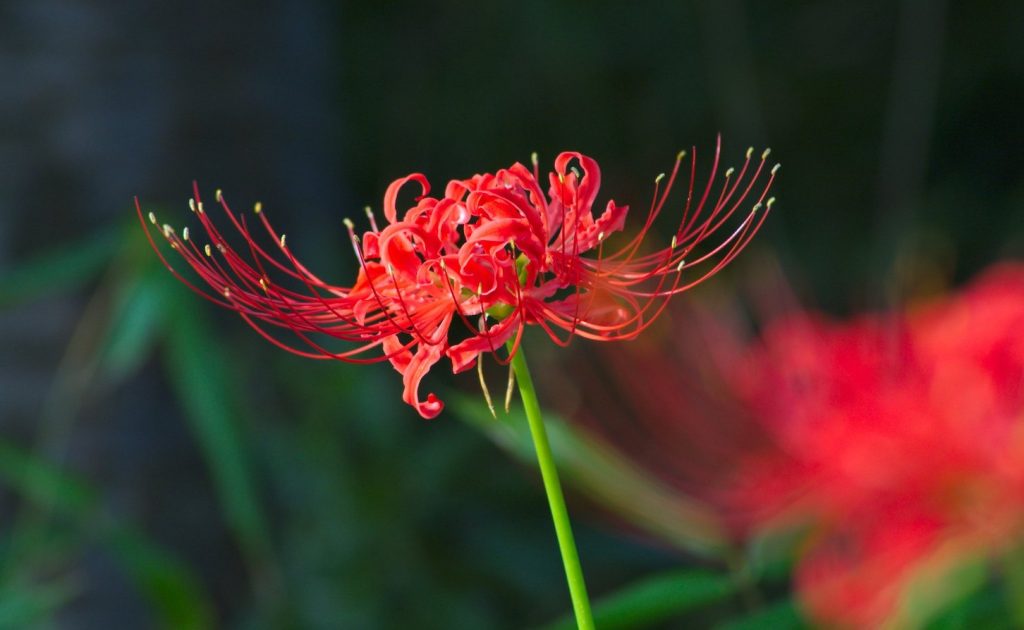“How brazen and impudent a person I am. And, without a heart of truth or sincerity. But because the Name is transferred by Amida, its virtues pervade the ten directions.” — Shinran Shonin
Once again we find ourselves in the month of September, facing the traditional Buddhist fall Ohigan observance, which we celebrate twice a year at the spring and fall equinox. Ohigan means the other shore of enlightenment or the Pure Land, which stands in opposition to this shore of samsara, or the world of delusion. Standing on that other shore is Amida Buddha, who is beckoning us to cross over.
In the Jodo Shinshu tradition, Ohigan is also called Sanbutsu-e (讃仏偈), a gathering to praise the Buddha, and Buddhists choose to observe the holiday at the fall and spring equinox because it is a time when nature and the universe are in harmony. The sun rises directly in the East and sets directly in the West. The length of day and night are the same, and the weather is neither too hot nor too cold. It marks a passage of seasons. In the fall, we see the trees change colors and plants and animals prepare for the winter months. Nature begins to go to sleep starting in September.
It is said that this harmonious time of year is the perfect time to contemplate the six paramitas. Paramita literally means “other shore” and the six practices are the tools that one uses to reach the other shore of enlightenment. They are: dana, selfless sharing; sila, correct behavior; ksanti, patience; virya, effort; dhyana, meditation; and prajna, wisdom.
For Jodo Shinshu Buddhists, Amida Buddha has perfected these six paramitas for us, which is why we gather to praise the Buddha.
As Shinran points out in his poem above, the name Namu Amida Butsu reaches across the shore to you and me as we reside in samsara. The Buddha’s concern for us is boundless and constant, like that of a parent for a child. Indeed, we sometimes refer to the Buddha as Oyasama (親様) or “great parent.” Because of his/her concern for us, she/he has completed the difficult practices of the six paramitas. Even when we resist, we are embraced by our great parent Amida Buddha.
Shinran uses the term Sesshu fusha (摂取不捨) a term from the Meditation Sutra, or Sutra on the Contemplation of Buddha Amitayus, which means “to be embraced and never abandoned.” It means that all will be taken and none left behind. It can also mean that anyone who resists and runs away still will be embraced.
Have you ever seen a squirming young child held by its mother? No matter how much the child arches its back, wriggles, twists, and turns, the mother securely holds the child. The child has no fear of falling because of the trust between parent and child. This is an example of the relationship between Amida Buddha and us. No matter how hard we try to escape or wriggle free, Amida holds on and embraces us with compassionate arms. Ohigan, then, is a time to praise the Buddha for the constant and deep compassion for you and me.
“The light emanating from Amida’s features illuminates all the worlds in the ten quarters, takes in all beings, and never abandons them.” — Meditation Sutra
Thank you for subscribing to Tricycle! As a nonprofit, we depend on readers like you to keep Buddhist teachings and practices widely available.
